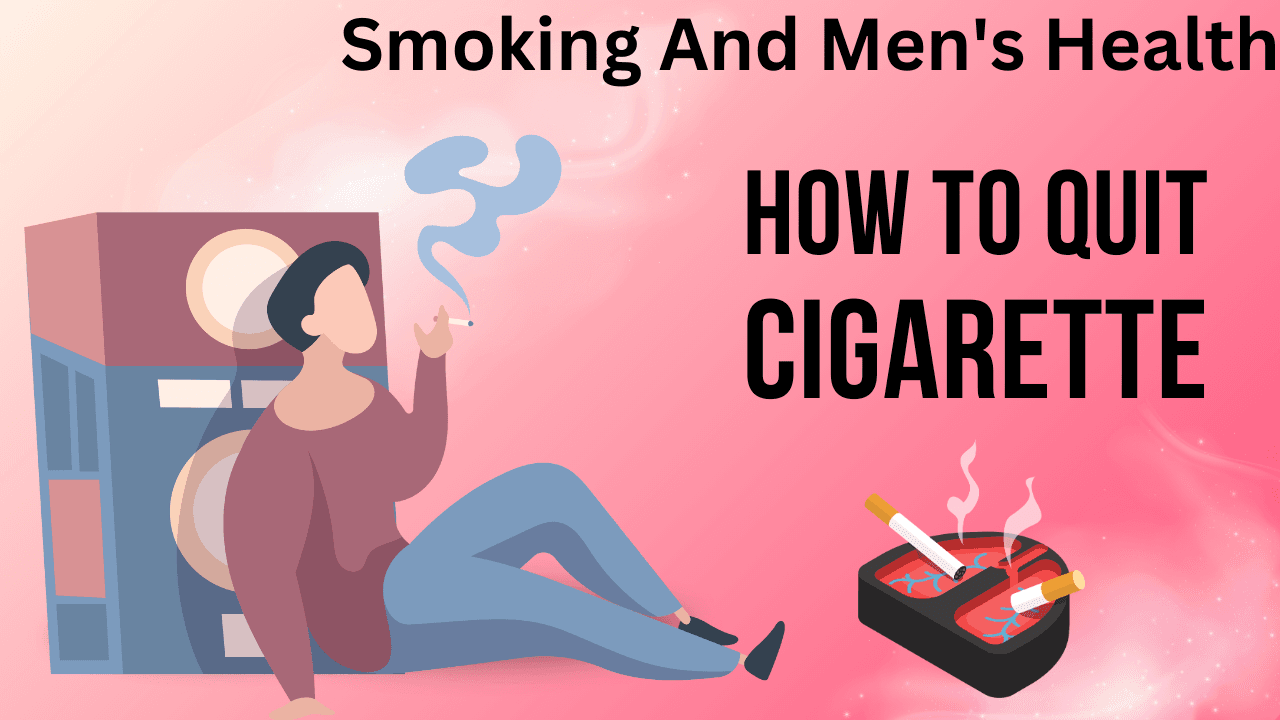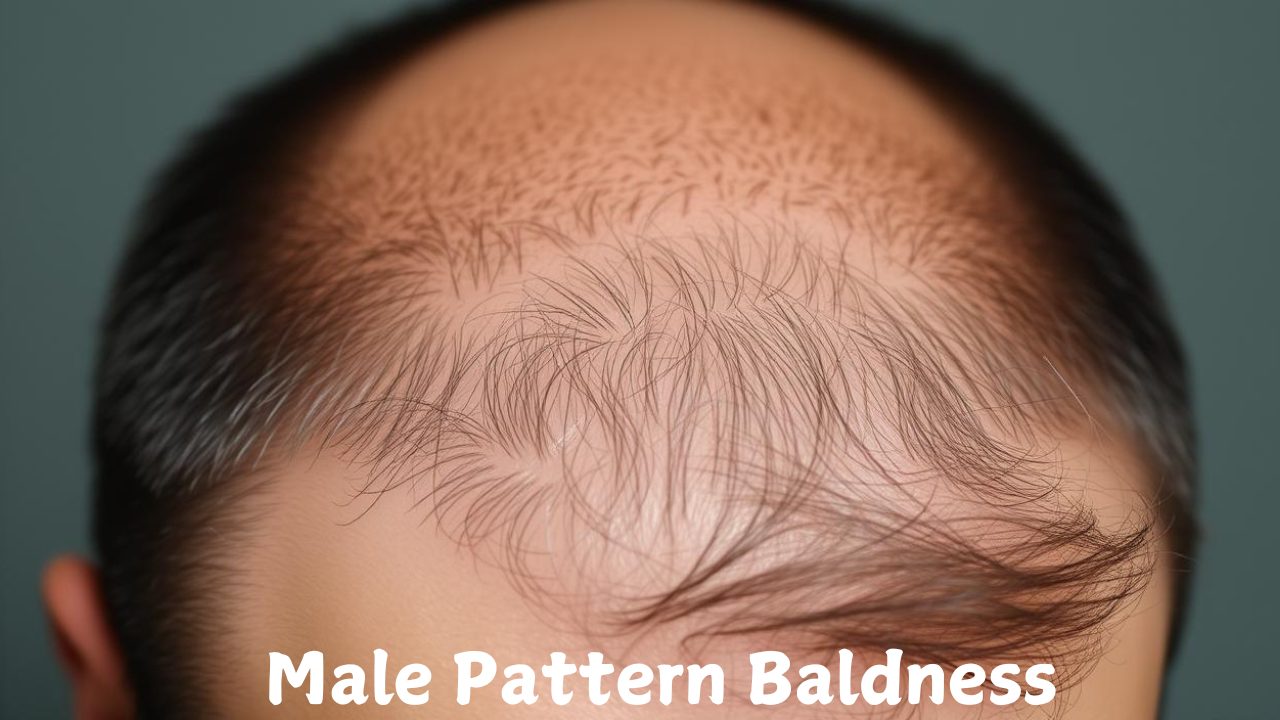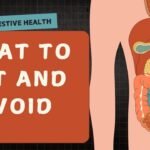- 1 Introduction:
- 2 1. The Impact of Cigarette Smoking on Men’s Health:
- 3 2. The Benefits of Quitting Cigarette Smoking for Men:
- 4 3. Strategies to Quit Smoking: Practical Steps for Success:
- 5 4. Overcoming Common Challenges During the Quitting Process:
- 6 5. Success Stories: Inspiration for Quitting Cigarettes:
- 7 6. Additional Resources for Quitting Cigarettes:
- 8 Conclusion:
- 9 Frequently Asked Questions:
Introduction:
smoking cigarette is one of the most widespread and threatening habits; it directly affects the male sex, which suffers severe consequences to health. Globally, WHO has estimated that over 1.1 billion people smoke, most of whom are men. If you consider yourself one of those men who cannot live without smoking and can’t just quit this dangerous habit, this article is right for you.
Cigarette smoking is not just a relapse, but a vices which are devastating to your health and can drastically impact your body; from your cardiovascular system to your psychological well-being. But here’s the good news: it’s never too late to quit. This powerful guide will also explain what you need to know about how to quit and why quitting will dramatically alter your health.

In the article, we will explore the consequences of smoking on men’s health, the advantages of cessation, and most importantly, practical ways that will enable you to quit smoking. If this is your first attempt at quitting or if you have previously attempted quitting, read this article as it will give you the information and the boost you need.
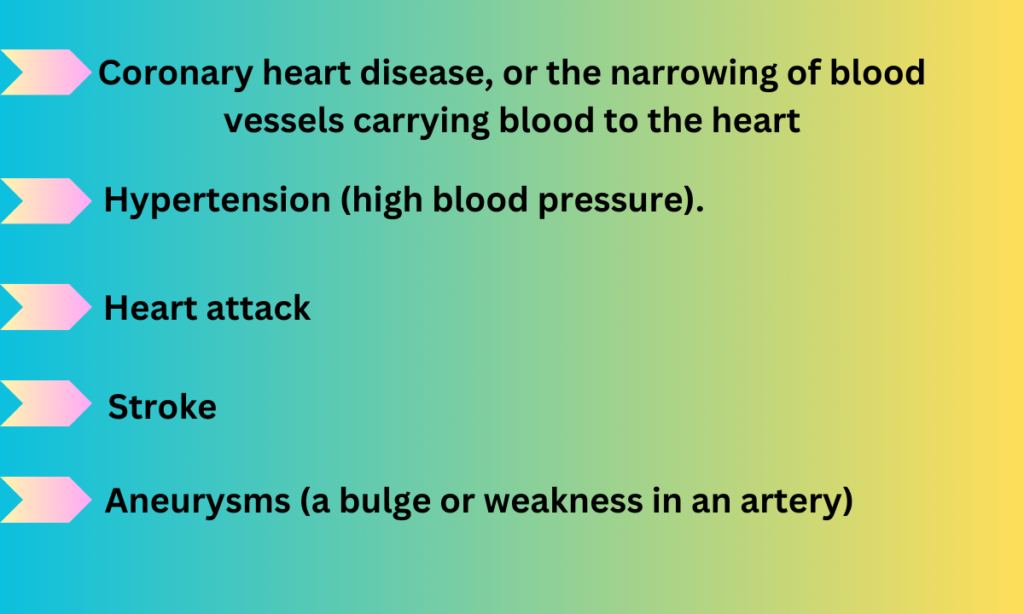
1. The Impact of Cigarette Smoking on Men’s Health:
1.1 Smoking and Cardiovascular Health in Men:
When it comes to the risks associated with cigarette smoking, the heart is the very first organ to experience it. Smoking causes a concentration of fatty substances in the blood vessels characterized by atherosclerosis. This results in a condition where arteries become constricted and blood flow is restricted, it will cause conditions such as high blood pressure, heart attack, and stroke. In conclusion, another research displayed that smoker men are twice as likely to get attacked by heart as compared to non-smoker men.
For people, the risk is not only long-term. Just five to ten minutes post-smoking a cigarette, the heart rate speeds up and there’s a rise in the blood pressure level. Different cigarette ingredients like carbon monoxide harm your heart in its ability to pump blood around your body, raising your chances of cardiovascular disorders.
Surprisingly, this was revealed by the American Heart Association where they said that as few as one to five cigarettes a day can result in serious heart harm. As a result, quitting cigarettes is one of the best things you could ever do for your heart.
1.2 Smoking and Respiratory Diseases:
Another common consequence of cigarette smoking is respiratory illness affecting most significantly the lungs. It will lead to chronic bronchitis, chronic obstructive pulmonary disease (COPD), or lung cancer in the respiratory system. Coincidentally, smokers are many times more likely to develop these conditions with COPD statistics revealing that as much as 80 – 90 percent of these cases are caused by smoking cigarettes.
What happens when you smoke is simple but deadly: the constituents of cigarette smoke destroy cilia in your lungs; cilia are hair-like structures that are meant for sweeping mucus and debris in your respiratory tract. When they are damaged or destroyed, then an accumulation of the mucus results to chronic coughs and breathlessness. For one, this damage is compounded over time and you may end up being breathless even when going up the stairs.
Smoking cessation lowers your risk of developing respiratory diseases most significantly. The risk of lung cancer starts declining immediately after a person quits and coughing and other breathing problem reduces in a few months.
1.3 Smoking and Reproductive Health in Men:
A lot of men are not aware that the use of cigarettes may affect their reproductive health to the worst. Research has it that smoking negative impact on particular testosterone levels, the amount of sperm present as well as the motions of the swimming sperm. Smoking makes it difficult for a woman to become pregnant and, if she does get pregnant, smoking raises her risk of miscarrying.
Furthermore, smoking has been found to cause erectile dysfunction meaning a man will not be able to perform sexually. The chemicals present in cigarettes are pro-215 and have the tendency to constrict blood vessels and they also slow blood flow to the male organ thus difficult to get an erection. Smoking also affects man’s health, where smokers are twice at risk of suffering ED compared to non-smokers.
This is particularly important for men who have threatened fertility, or who wish to enhance their sexual health, and it starts therefore with putting an end to smoking. Quitting smoking also assists in rectifying blood flow problems and consequently assists in fertility and erectile illness after some time.
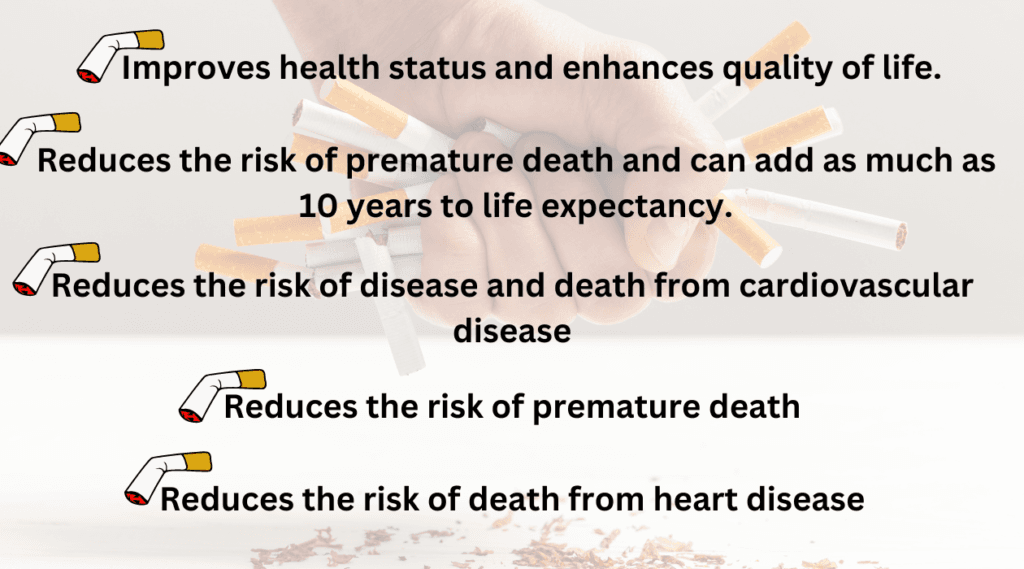
2. The Benefits of Quitting Cigarette Smoking for Men:
2.1 Immediate Health Benefits After Quitting:
The body starts the process of repairing the cellular damage that has been done the moment you quit smoking. After only 20 minutes your heart rate and blood pressure return to normal. Within the next 12 hours, the amount of car bon monoxide in the blood drops and oxygen is then able to circulate f reely through out the body.
in two weeks to three months, your general circulation is enhanced and the capacity of your lungs is also enhanced. This means you will find that you have eased on breathing and that the exercises like walking and exercising are not as intensive as before. This somewhat rapid improvement is one of the most motivating reasons for leaving the habit of smoking cigarettes.
Staying off smoking also helps reduce your chances of a heart attack. New studies show that your risk of heart attack starts to decline within six weeks of ditching cigarettes and steadily goes down every year.
2.2 Long-Term Health Benefits:
It important to note that the benefit of cigarette smoking cessation is not only restricted to health but for a lifetime. In one year, your chances of developing heart disease are reduced to half. It’s after five years that you can have your risk of stroke reduced to that of a non-smoker. After 10 years your risk is reduced to approximately half of the risk of a man who continues to smoke.
What we see here are not just statistic figures but gains in your existence standards. Smoking cessation also has positive effects on sleep quality: Men who stop smoking say they feel less tired and more awake and attentive on the job and at home. Besides, you’ll be saving money that would have been spent, and gone up in smoke.
2.3 Positive Effects on Mental Health:
For a long time, people have used cigarettes as a way of coping with stress or anxiety only to find that cigarettes are detrimental to the mental health of the smoker. Nicotine is a stimulant that makes an individual feel more anxious and restless; hence one will find themselves using nicotine to calm them.
Smoking can have negative effects on your mental health not least, quitting smoking can enhance your mental health in the long run. The individuals who quit smoking said that they have decreased anxiety, depression, and stress levels, as well as improved mood. However, the withdrawal period can be harsh, but the long-term mental health impacts make it all worthwhile.
3. Strategies to Quit Smoking: Practical Steps for Success:
3.1 Behavioral Approaches to Quit Smoking:
Smoking cessation is not simply a case of deciding and then not smoking; it involves a strategy. Start by setting a quit date. Choose a day within the coming two weeks to allow yourself adequate preparation without delaying or postponing the option. Write down the list of reasons to quit and have them in mind to remind you why you are quitting.
Find out what factors make you use cigarettes. To many, cigarettes are associated with certain processes such as drinking coffee after a meal or whenever one is under pressure. That way, what is considered a trigger can be avoided or managed, by coming up with preventable or labeled measures.
Another important aspect is also the accountability. Get family and friends, and other people you interact with at work engaged so that they will assist you in your quit endeavor. It’s always easier to avoid distractions when you know people are to support you and they can also motivate you even in the worst of times. It is also possible to check out the local support group or an online forum of people, who are going through the same process.
3.2 Nicotine Replacement Therapy (NRT) and Medications:
Putting nicotine back into the body through the aid of nicotine gums, patches, lozenges or inhalers can minimize withdrawal symptoms and cravings. Available over-the-counter products are nicotine patches, gum, lozenges, and inhalers. These products give your body a little bit of nicotine and no tobacco or any other chemicals found in cigarettes.
There are other specialty drugs available for smoking cessation which include varenicline (Chantix) and bupropion (Zyban). These drugs function in a way that they help in reducing the desire of the brain to take nicotine thus enabling one to withdraw from the substance. You should talk with your doctor to determine whether or not medication is suitable for you.
3.3 Mindfulness and Stress-Relief Techniques:
It can be indeed draining to come to a point where you finally decide to quit smoking if you have been a smoker for some time now. Awareness exercises, including relaxation skills of meditation and deep breathing, also can control stress and ease the temptation to smoke.
Yoga is another best way to release stress, To release stress, It achieves both the client’s mental well-being and health without him needing to be still for an extended period. By applying these techniques to your lifestyle, people will find it easier and convenient to quit the habit.
3.4 Exercise and Healthy Habits to Replace Smoking:
Aerobic fitness reduces cigarette smoking and can be used as a weapon against smoking. Not only does exercise help to distract you from cravings, but exercise also improves mood and physically starts to reverse some of the harm caused by smoking. Exercise such as walking, jogging, or cycling helps to increase your lung capacity and also your heart as well making you feel good both psychologically and psychologically.
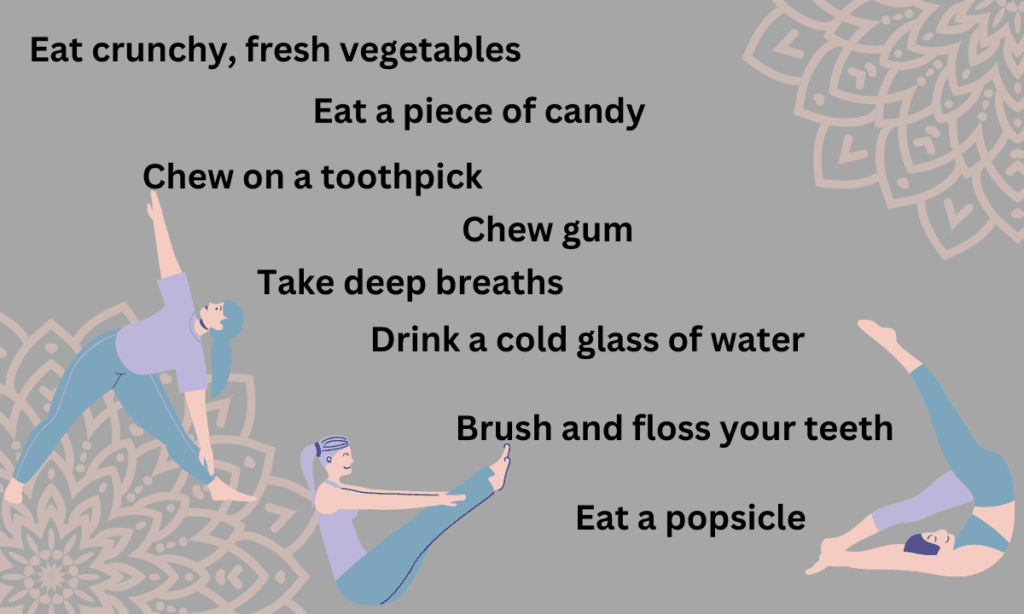
Besides exercise, one needs to create practices that will prevent relapse or occur instead of smoking. Perhaps start a new project, knitting, gardening, sewing, or any other activity that will safely occupy your hands and your mind. Therefore, if it is learning to play a guitar or violin, cooking or even taking up gardening, you might find something that might substitute the use of cigarettes.
4. Overcoming Common Challenges During the Quitting Process:
4.1 Managing Cravings and Withdrawal Symptoms:
Cigarette withdrawal is equally an essential aspect of smoking cessation because it’s always difficult to know how to handle hunger and yearning triggers. Those first few days especially are fairly difficult because the body goes through withdrawal from the nicotine you’ve been putting into it. Some of the symptoms that you are likely to develop include; irritability, lack of focus, and increased food cravings.
To overcome cravings reduce hand and mouth activity. Suck on a piece of gum, have a sip of water, or eat low-calorie foods such as fruits and vegetables. Breathing exercises may be also useful; these will give you a fast and effective method of practicing relaxation and recalling your mind’s purpose.
Bear in mind that nicotine replacements, further discussed in this article, can effectively treat withdrawal and make it considerably less difficult to quit.
4.2 Dealing with Relapse and Bouncing Back:
There is nothing to worry about quitting when it comes to relapse since it is but a common occurrence. It takes quite a few tries to kick the habit, so don’t get disheartened if you have a lapse. Instead, focus on
what you can get out of it and how you can change it into something positive by using it to harden you even more.
If you do slip, don’t wait to get back into the swing of things on the diet plan. Find out what made you relapse and correct the actions that led you to the relapse. It could be stress and or social pressure, or even a particular situation, and knowing what triggers you will assist you in not coming across such situations again.
5. Success Stories: Inspiration for Quitting Cigarettes:
5.1 Real-Life Testimonials from Men Who Quit Smoking:
Finally, it is somewhat encouraging to get some motivation from others who have quit smoking. Another success story is from John, a 45 years man, a smoker for 20 years. John was able to quit smoking after moving to the use of nicotine patches alongside the support of his family. Now he is quite fit; when asked, he affirmed that the most fabulous decision of his life was to quit smoking.
The next story is the story of Dave, a 32-year-old father of two children who decided to quit smoking to be a good example to his children. Dave had problems with several recidives but at last, he got it through an online recovered support group. He eats more energy, has good lungs, and enjoys being close to his kids.
5.2 Celebrity Success Stories:
They include several public figures most of whom have attained a certain level of success and hence can also quit smoking no matter how hard the process is. For instance, actor Leonardo DiCaprio managed to stop smoking through repeated efforts and has since become a champion of a smoke-free world. These celebrity success stories may help inspire other people who can not kick cigarettes.
6. Additional Resources for Quitting Cigarettes:
6.1 Apps and Tools for Quitting Smoking:
Today you can find a lot of applications and services aimed at smoking cessation in the store. Some apps “Smoke-Free” and “QuitNow!” provide daily recommendations, and save your results in case you want to come back and continue the exercise, together with social support that can encourage the person to arrive at the next level. These tools may also help you enhance your quit plan; they offer motivation and support throughout your quitting process.
6.2 Support Groups and Counseling Services:
Having social support in the form of a group or counseling can help you quit a lot better than not having any of these sources of support. Securing local and online Self-help groups enables individuals to share daily struggles and achievements with people who understand their experiences.
The National Cancer Institute (NCI) has a free quitline, where they offer consultation on how people can quit smoking. You should seek help from someone if you find that things are becoming too much for you.
6.3 Books and Podcasts on Quitting Smoking:
There are also several great print and audio resources available to help people quit smoking. Allen Carr’s globally bestselling slim, subtitled ‘The Easy Way to Stop Smoking’ has been hailed as the complete cure for smokers trying to quit cigarettes. There are many podcasts out there such as “The Smoking Cessation Podcast” which are created to offer encouragement and advice after every episode to make sure you do not go back to smoking.
Conclusion:
Technically, it is very challenging to quit but by far it is one of the most beneficial things that can be done for one’s health. No matter what your ailment is, heart disease, lung cancer, or reproductive health, the gain that comes with quitting outshines the discomforts of withdrawal by far. Subscribing to the strategies discussed in this guide shall help you to easily let go of this vice and kick start a healthy lifestyle.
Start now and don’t forget that there is help if you need it. From posting your experience to asking for help whenever you are overwhelmed and staying focused on the goal of smoking cessation. You’ve got this!
Frequently Asked Questions:
This FAQ section addresses common concerns and questions about quitting smoking, providing additional clarity and support for readers of the article.
1. What are the first steps I should take to quit smoking?
Begin by choosing a quit day within the coming two weeks, and then proceed to put on your positive attitude. Strong reasons for quitting, preferences to smoke, behavioral cues to smoke, and cues to seek social support should be practiced. So, understand different forms of remedy- nicotine replacement therapies and behavioral methods to support you through this process.
2. How long will it take for my body to start healing after quitting smoking?
Your body starts the healing process as soon as you decide to quit. In a space of 20 minutes, heart rate and blood pressure go back to normal levels. In several weeks to several months, lung function and circulatory capacity are enhanced reasonably well. Long-term benefits include decreased risk of heart disease and lung cancer, all of which keep growing with the years.
3. Can I use medications to help me quit smoking?
Of course, there is a number of medications that can help in quitting. Nicotine in any form (patches, gum and lozenges) is used, as it minimizes withdrawal symptoms by giving an individual a measured amount of nicotine. These are nicotine specific products but other prescription medications like varenicline, which belongs to a class of drugs known as nicotinic receptor partial agonists and bupropion which is an antidepressant also help kick the habit. Please, seek advice from your doctor, to determine which is the most suitable for you.
4. What should I do if I experience cravings after quitting?
Palm-sweating is to be expected when you quit. One way to avoid substance use is to engage your hands and mouth with healthy snacks or gum and/or participate in other activities such as deep breathing. Learn what these are for yourself and find ways on how to cope with them. However, most have intensity lasting only a couple of minutes so come up with ways of handling yourself whenever you get the urges.
5. What are some effective ways to cope with stress without smoking?
You can avoid my-using stress-relief products such as cigarettes, alcohol, potato chips or cookies; try to engage in sports, Yoga, Meditations or deep-breathing exercises. Occupations that you might indulge in can also assist reduce stress and take your mind off cigarettes and their use.
6. How can I stay motivated to quit smoking?
Motivation entails requiring and eliciting focused objectives or need for quit in an efficient manner. Document your experience and accomplishments on your way and enjoy your achievements. Getting involved in support groups on the Internet or face-to-face can offer the motivation and the motivation.
7. Is it normal to relapse while trying to quit smoking?
Indeed, relapse is possible and is a typical feature of smokers’ quitting journey to some extent. While trying to follow this diet, should you falter, do not despair. The relapse needs to be assessed in terms of what caused it, and the individual should recover from and resume correct behavior as quickly as possible. Commitment is the only solution to ending the vice permanently.
8. How can I find support while trying to quit smoking?
Perhaps attending relevant local or online forums, so you would be able to communicate with others who are in a similar situation. Social support may encompass quitlines and counseling services besides applications and websites which are invented to help patients and individuals to cease smoking.
**9. What are the long-term health benefits of quitting smoking for men?
Check how quitting can help-Less chances of getting heart diseases, lung cancer, respiratory diseases and other illnesses. In the long run, you notice an increase in the efficiency of your lungs, your circulation system, and the quality of life is also rich in addition to good mental health.
10. Can quitting smoking improve my sexual health?
Indeed, smoking cessation is associated with special positive changes in the sphere of sexual relations. Cigarette smoking impacts the testosterone levels, as well as the sperms and erectile function. By removing yourself, hormone and blood flow returns to normal – thus fixing fertility and sexual performance problems.
